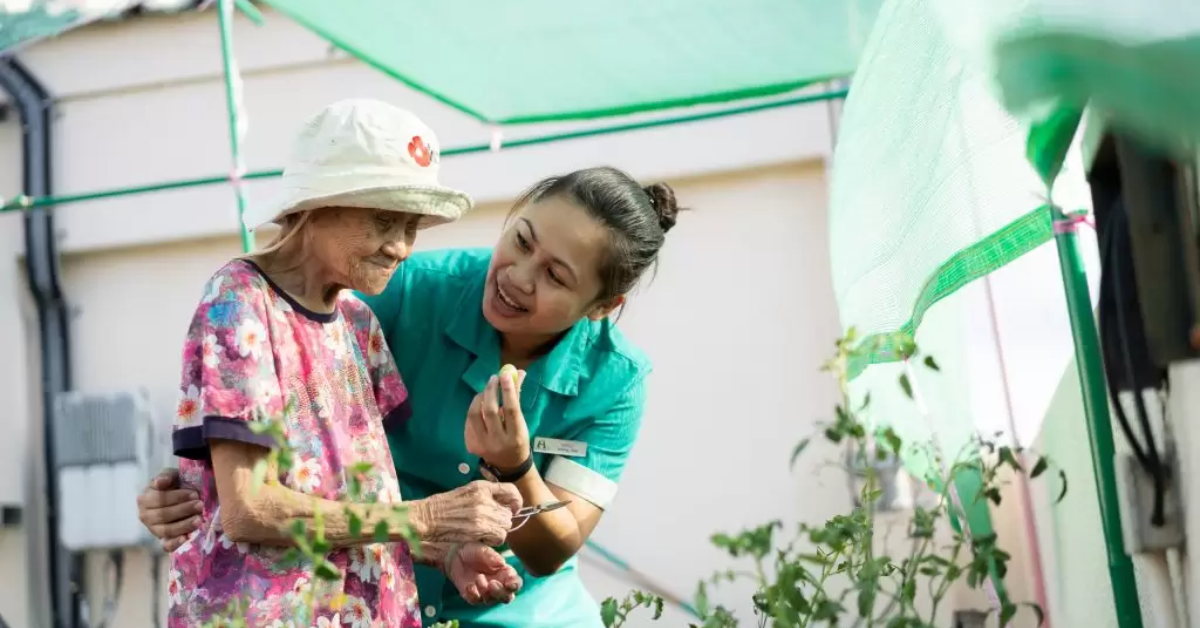Understanding Nursing Homes in Singapore: A Guide for Families and Caregivers
As Singapore’s population continues to age, the demand for reliable and compassionate eldercare services has grown significantly. One of the most important aspects of long-term eldercare is choosing the right nursing facility. Nursing Homes In Singapore have evolved over the years to offer not just basic medical care, but also comprehensive support tailored to the physical, emotional, and social needs of elderly residents.
Families often face difficult decisions when it comes to caring for aging loved ones. While some seniors are able to age gracefully at home with the support of domestic caregivers or day-care services, others may require full-time professional care due to medical conditions, mobility issues, or cognitive impairments such as dementia. In these cases, nursing homes provide a structured environment that prioritizes both safety and quality of life.
What Are Nursing Homes?
Nursing homes are residential care facilities designed for seniors who need assistance with daily living activities and ongoing medical supervision. In Singapore, they are either run by government-affiliated organizations, non-profits, or private providers. Each type of home caters to different needs and budgets, but all are regulated by the Ministry of Health (MOH) to ensure they meet national healthcare and safety standards.
Facilities typically offer a range of services including:
-
24-hour nursing care
-
Medical and rehabilitation services
-
Meals and nutrition management
-
Social and recreational activities
-
Assistance with daily tasks such as bathing, dressing, and mobility
These services aim to provide residents with not only physical care but also emotional support and opportunities for meaningful social interaction.
Why Nursing Homes Are Increasingly Necessary
Singapore is now one of the fastest aging countries in Asia. According to government statistics, by 2030, one in four Singaporeans will be aged 65 or older. This demographic shift has brought new challenges to families, many of whom may be part of the “sandwich generation”—adults who are simultaneously supporting their children and their aging parents.
In dual-income households or families without access to full-time caregivers, it becomes difficult to provide round-the-clock attention to an elderly family member. In such situations, nursing homes play a crucial role by offering a supportive environment where seniors can receive professional care without burdening the family.
Moreover, some health conditions like stroke, Parkinson’s disease, or advanced arthritis can severely limit a person’s ability to live independently. Nursing homes in Singapore are well-equipped to manage these conditions, with trained healthcare staff, physiotherapists, and access to specialist medical services.
Types of Nursing Homes Available
There are generally three types of nursing homes available in Singapore:
-
Government-Supported Homes
These homes receive funding and support from government agencies such as the Agency for Integrated Care (AIC). They are typically more affordable and are allocated based on a needs assessment. Waiting times can be long due to high demand. -
Non-Profit Nursing Homes
Run by voluntary welfare organizations, these homes operate on charitable models and provide affordable services. Some may have religious affiliations, which might influence the environment or activities offered. -
Private Nursing Homes
These are typically more expensive but may offer higher-quality amenities, personalized care plans, and shorter waiting times. Many private nursing homes in Singapore provide premium services such as single or double rooms, gourmet meal plans, and extensive recreational programs.
Each type of nursing home has its own advantages and is suitable for different families based on their preferences, financial situation, and the specific care needs of their loved ones.
What to Look for When Choosing a Nursing Home
Choosing the right nursing home involves more than just comparing prices. Here are some important factors to consider:
-
Accreditation and Licensing: Ensure the facility is licensed by the Ministry of Health and adheres to national standards.
-
Staff-to-Resident Ratio: A lower ratio usually means better individual attention.
-
Medical Services: Check whether the home can manage chronic illnesses or specialized conditions.
-
Cleanliness and Safety: Tour the facility to inspect hygiene practices, emergency procedures, and general upkeep.
-
Programs and Activities: Social interaction and mental stimulation are vital to senior health.
-
Food and Nutrition: Make sure the dietary needs of residents are considered and met.
-
Proximity to Family: A home located near the family allows for easier visits and stronger emotional support.
Taking the time to visit several homes, ask questions, and read reviews can make a significant difference in finding the right fit.
Financing and Government Support
Singapore provides several financial assistance schemes to make eldercare more affordable:
-
Subsidies for Nursing Homes: MOH offers means-tested subsidies for eligible citizens and permanent residents.
-
ElderShield / CareShield Life: These are insurance schemes designed to provide financial support for severe disability and long-term care needs.
-
Medifund and MediSave: These can also be used to offset the costs of staying in a nursing home.
Families are encouraged to explore these options early, as the application and approval process can take time.
The Human Side of Elder Care
While medical and physical care is essential, emotional well-being is just as important. Many modern nursing homes in Singapore now incorporate holistic care models that include mental health services, pastoral care, art and music therapy, and even pet therapy. These initiatives aim to make residents feel more at home and less isolated.
It is also vital for family members to maintain regular contact with loved ones in nursing homes. Frequent visits, video calls, and involving them in family events—even virtually—can significantly enhance their mood and emotional resilience.
The Future of Nursing Homes in Singapore
With ongoing advancements in healthcare technology, the future of nursing homes in Singapore is promising. Many facilities are adopting digital health monitoring systems, AI-powered mobility aids, and personalized care software to enhance resident well-being. At the same time, there is a push toward more community-integrated models that allow seniors to stay connected with their neighborhoods and lead fulfilling lives.
Moreover, some homes are now offering transitional care, dementia-specific units, and short-term respite care for families who need temporary support. These developments reflect Singapore’s commitment to improving the quality and accessibility of eldercare for all citizens.
Conclusion
As the nation continues to age, the role of nursing homes in Singapore becomes increasingly vital. These facilities are more than just places for elderly individuals to live—they are communities where seniors can thrive under compassionate, professional care. Whether you are planning for your own future or supporting a loved one, understanding the options and making informed decisions can ensure dignity, safety, and quality of life in the golden years.
By taking the time to explore available services and assess individual needs, families can find a nursing home that truly feels like home.







